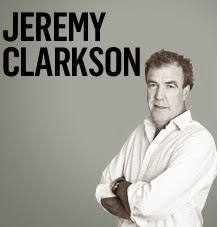Alan Rusbridger, speaking at the Guildhall School of Music & Drama in London, as reported by the Guardian: “Local newspapers, they basically can’t fight. They basically can’t afford the cost of even a couple of solicitors’ letters.”
lisa o'carroll @lisaocarroll on Twitter: "Fifa says it's a good day for Fifa. Nope. It's a good day for the Sunday Times and investigative journalism."
Fergal Keane @fergalkeane47 on Twitter: "#FIFA Lasting respect for @AAndrewJennings and @BBCPanorama who had the guts to go after FIFA when so many failed to do so."
Michael Crick @MichaelLCrick on Twitter: "FIFA arrests also an indictment of all sports journalists who turned blind eye, or accused Panorama & Sun Times of endangering World Cup bid."
lisa o'carroll @lisaocarroll on Twitter: "Fifa says it's a good day for Fifa. Nope. It's a good day for the Sunday Times and investigative journalism."
Fergal Keane @fergalkeane47 on Twitter: "#FIFA Lasting respect for @AAndrewJennings and @BBCPanorama who had the guts to go after FIFA when so many failed to do so."
Michael Crick @MichaelLCrick on Twitter: "FIFA arrests also an indictment of all sports journalists who turned blind eye, or accused Panorama & Sun Times of endangering World Cup bid."
Laura Davison, NUJ organiser, in a statement: “The NUJ will be writing to the new Culture Secretary and others to highlight what is happening in Newsquest London and across the company. This programme of devastating cuts will make it much more difficult to hold people in power to account and to produce the high quality content readers and advertisers want. Our members are putting forward absolutely legitimate concerns about increased workloads, the impact on quality and the need for investment in editorial and these must be addressed.”
Peter Preston in the Observer: "What the Mirror did a decade or more ago needs a good kicking and maybe a good sacking. Uphold the law. But the law can be self-serving ass if it lets its awards lurch out of kilter. The editor of the Guardian rightly laments the chilling effect of legal costs on probing reporting. Local Trinity Mirror newsrooms may come to lament the impact of this episode on a company that doesn’t have Murdoch’s resources. There’s necessary pain in all this to be sure; but be careful to look for the gain."
Martin Evans in the Telegraph: "The Metropolitan Police is continuing to spend half a million pounds a month investigating allegations against journalists... figures released under the Freedom of Information Act reveal that the spending is continuing apace with the bill reaching almost £4 million for the last eight months."
Camilla Cavendish in her last column for the Sunday Times [£]: "I feel I leave the industry in better shape than many predicted. And as I disappear to be a small cog in the vast machine of government I hope that journalists — and readers — will continue to hold the powerful to account. Including governments."
Hugo Rifkind in The Times [£] on his days as a celebrity gossip columnist: "After a while, and not even a very long while, it began to wear me down. So much shame, so much hassling of your idols, and for what? You’d get home at 2am, drunkenly chuffed that you’d managed to discover why Richard E Grant wore two watches (one was his dad’s) or which language Jude Law’s kid was learning at school (Chinese), yet still with a niggling, bleak sense that maybe there wasn’t a Pulitzer in this. Then you’d stagger into the office, and tell people, and find out that the bastards had said the same thing to the guy from the Indy two months ago."
Jeremy Clarkson in the Sunday Times [£] : "Which brings me on to the newspapers, which are full of writers who want to be seen as serious and wise. They seem to think that being funny is a sign of weakness. Happily, this one has AA Gill, who can spend two whole columns ricocheting around Pseuds Corner but then right in the middle of a discourse on pre-Byzantine architecture make a laugh-out-loud joke about turds. He’s rare, though. Because think about it: when was the last time you read anything in the Daily Mail that was funny? Or, apart from Matt, in the Telegraph? Yes, The Grauniad is funny, but usually not on purpose."
Polly Toynbee on what Labour would have done if elected, in the Guardian: "One bill [Lord] Falconer drew up with particular relish: over-mighty media ownership would be curtailed. A bill would have restored something like the rules before Margaret Thatcher abolished limits on the press and broadcasting one owner could control, when she granted Rupert Murdoch unprecedented market dominance. Newspapers would have been pushed to fall in with Leveson. Since all titles but the Guardian and Mirror backed David Cameron, Labour had little to lose by restoring more media plurality. Yet it fired new levels of ferocity. Will anyone dare again?"
[£]=paywall













No comments:
Post a Comment